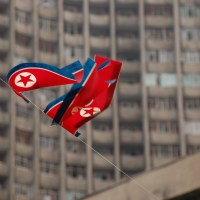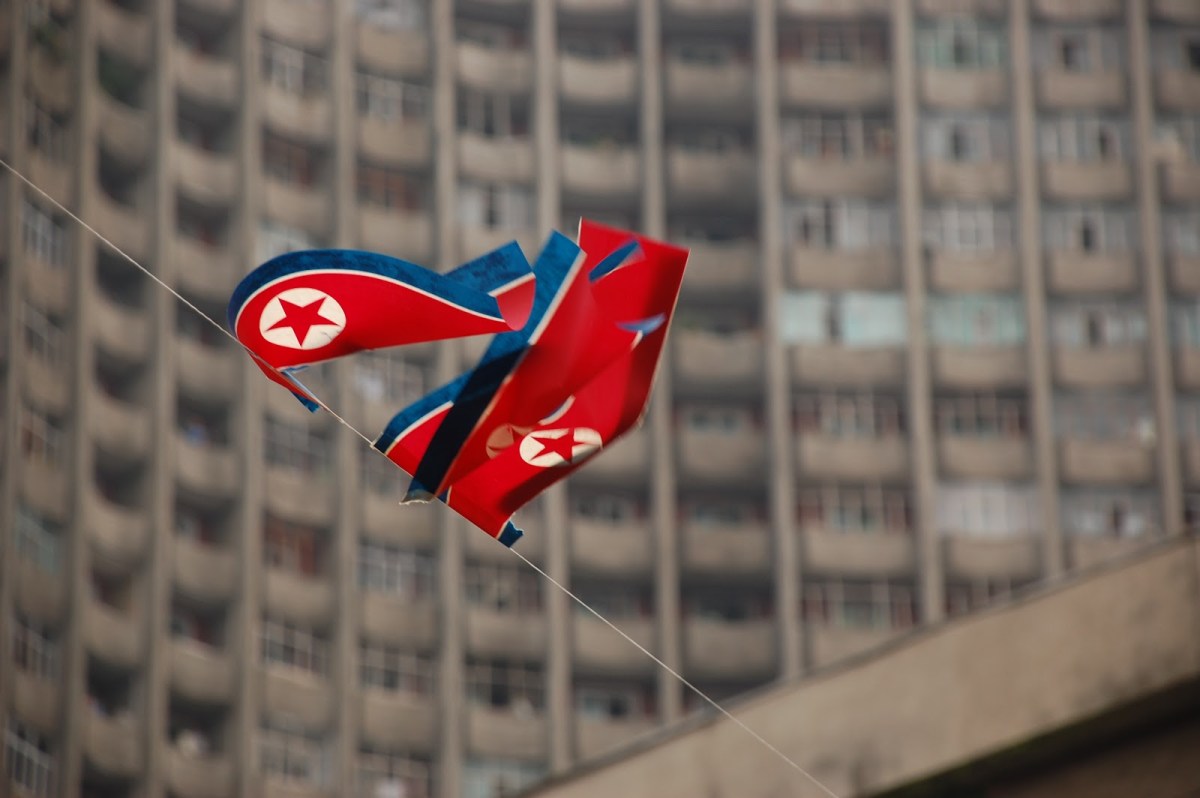Before invading Iraq in 2003, U.S. military leaders promised “shock and awe.”
As tensions with North Korea ratcheted up last year, President Trump promised to meet further provocations with “fire and fury.”
We’ve been playing off the same script for decades, trying to beat dictators into submission with threats of overwhelming force—threats on which we’ve often made good. See: Iraq, Libya, etc.
And given yesterday’s news of a possible breakthrough on the Korean Peninsula, it’s tempting to think such rhetoric might be justified—that at least in some cases, it has the desired effect.
During a meeting this week in Pyongyang with South Korean leaders, Kim Jong-un reportedly offered to restart negotiations with the US on giving up its nuclear weapons program. But there is a catch—and that catch has everything to do with how we respond to dictators like Kim Jong-un and the unintended consequences of our actions and rhetoric.
According to NPR, “North Korea sees no reason to have nuclear weapons if its security was guaranteed and the regime wasn’t threatened” (emphasis added).
That’s really what this is all about.
We’ve said it before—here and here. North Korea’s leaders are not madmen. They’re not unhinged psychopaths. They’re not the caricature they’re portrayed as by the media. They’re making calculated choices.
North Korea was watching when America forced Saddam Hussein to dismantle his weapons of mass destruction in the 1990s, only to invade Iraq anyway in 2003.

North Korea was watching when Libya agreed to disarm, a couple years after President Bush reportedly told Muammar Gaddafi, “Either you get rid of your weapons of mass destruction or [we] will personally destroy them and destroy everything with no discussion.” A few years later, under President Obama, the US played a key role in Gaddafi’s ouster and death.
North Korea has watched as other rogue regimes are portrayed as unhinged monsters, as demands are made and acquiesced to, as sanctions and other isolating measures are imposed, and ultimately, as they are painted into a box from which there is no way out.
It’s no accident North Korea is demanding a guarantee on its sovereignty in exchange for its nuclear weapons.
Dictators have the same survival instinct we all have.
And while there’s no guarantee that meeting their demand will bring lasting peace—some experts have pointed to previous overtures as proof that it won’t work this time—we know from recent history where the alternative path leads.
It’s led to years of war and disruption in Iraq, displacing millions of people to this day.
It’s led to upheaval and civil war in Libya, an entire country teetering on the brink of becoming a failed state.
In North Korea, the stakes are much, much higher. An estimated 25 million South Koreans live within striking distance of the Demilitarized Zone, within easy reach of North Korean rockets. Thousands, perhaps millions on both sides, will be killed in the event of war.
It’s not too late to choose another path. It’s not too late to climb down from our escalating rhetoric.
Or, if loving your enemy is a bridge too far, to stop treating them as irrational monsters to be caricatured and ridiculed—which only makes it easier to dehumanize them and rationalize wiping them off the face of the earth.
It doesn’t mean we roll over. It doesn’t mean we let provocations go unchallenged. It doesn’t mean we ignore gross violations of human rights.
But it does mean recognizing that the more beautiful world cannot be built on threats of annihilation.
It means recognizing that the same cycle of violence that yielded devastation in Iraq and Libya will not produce a better result in North Korea.
It means seeing our enemies as human—and making that our starting point for dialogue.


